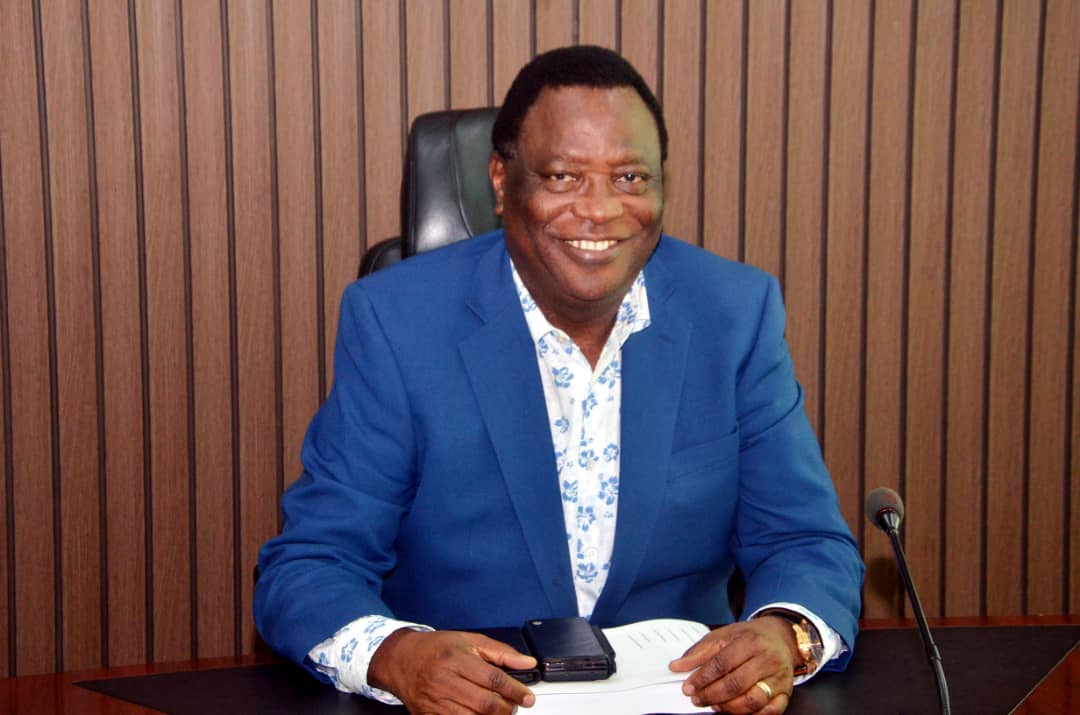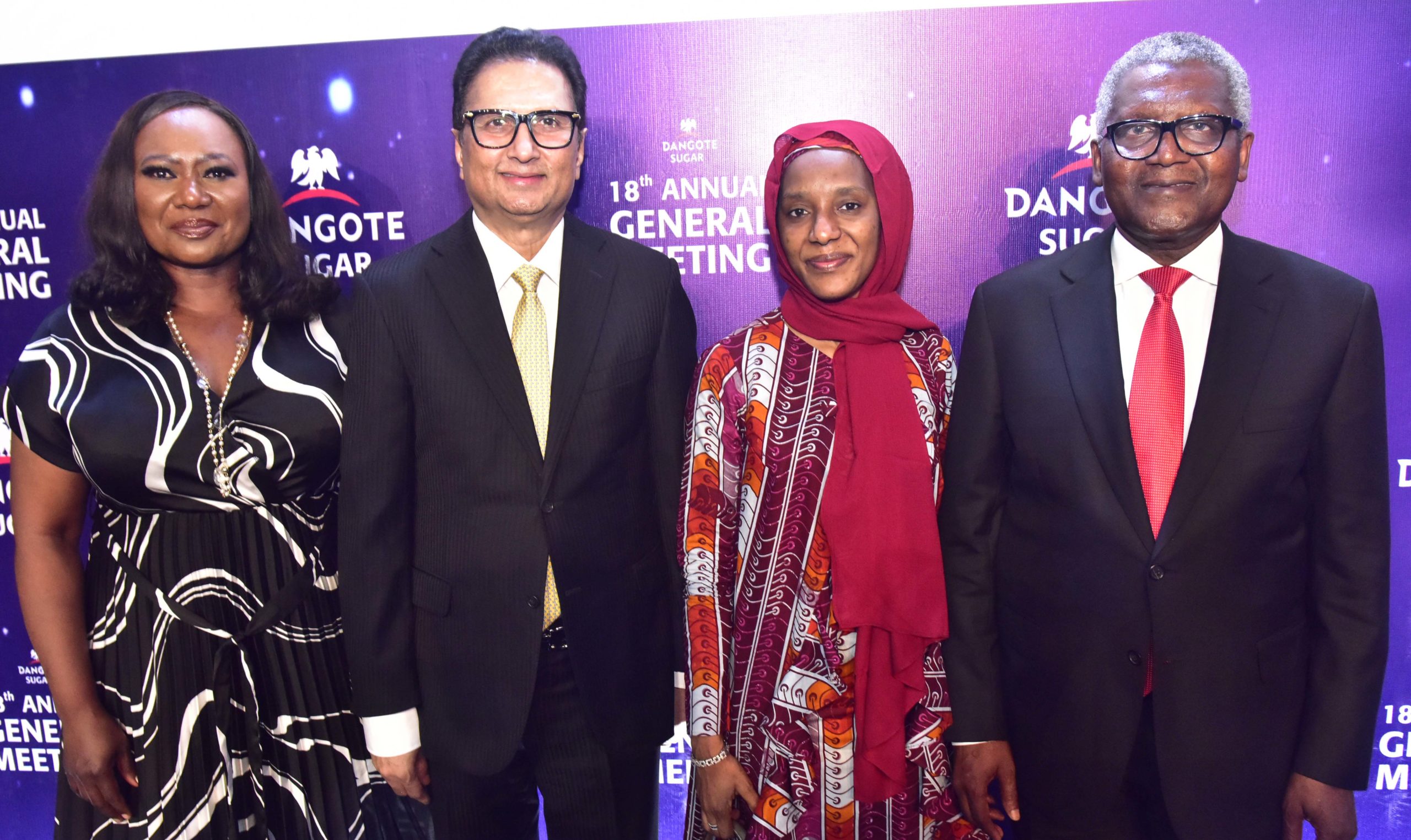Business
Oil slump: Nigeria targets self-sufficiency in food production

LAGOS-There has been a renewed emphasis on local food production in recent times owing to the continued slip in oil prices globally and t he resultant devaluation of the local currency.
he resultant devaluation of the local currency.
All over the country, there has been a return to the agricultural sector which hitherto lay dormant while Nigeria savoured oil wealth. But with the oil almost trickling to a stop, the country has suddenly been roused to its former source of wealth; agriculture and food production.
A major foreign exchange earner in the 1960s and 1970s, the sector has featured in various development plans spanning 52 years, starting from the 1962-1968 development plan which was Nigeria’s first national plan and culminating in recent efforts of the President Goodluck Jonathan’s administration.
According to an economic analyst, Professor Sherifdeen Tella, the sudden drop in the price of crude oil was what Nigeria needed to jolt it back to the reality of the importance of agriculture. Tella had urged total dedication to the sector, saying that the government and people of Nigeria should not see the situation as a temporary one.
In the same vein, Bismark Rewane was optimistic that if there was commitment on the part of people and the government, it was possible for Nigeria to be self-reliant and comfortably support the economy with earnings from the non-oil sector.
Since June 2014 when the price of crude oil started falling from its peak of $115 per barrel, and continued its downward spiral, analysts have not ceased to call on the government and stakeholders to urgently consider diversifying the economy.
In a swift response to the situation, the Federal Government has, since last year, embarked on far-reaching agricultural programmes meant to boost local food production.
In October, the government approved the Nigeria Agricultural Transformation Agenda Support Programme which was proposed a year earlier.
Details of the plan published on the African Development Bank online portal, included a two-phased programme that consisted of an initial phase of three years to put in place, the delivery and institutional mechanisms through a learning by doing and piloting approach.
Other reforms have since followed the ATA in quick succession as the global oil benchmark keeps edging towards the $40 mark. From all indications, agriculture has become a central focus of the economy being the major foreign exchange earner apart from oil.
The Minister of Agriculture, Dr.Akinwumi Adesina, believes that things have been moving so fast in the sector that come 2017, the country will achieve self-sufficiency in food production.
Adesina said the success recorded in the cassava sub-sector was a strong indication that Nigeria was on its way to food self-sufficiency. He noted that the country had done extremely well in food production, adding that food import bill went down from 1.1trn in 2009 to N697bn by the end of December, 2013.
He told our correspondent, “Today, Nigeria is the largest producer of cassava in the world. The goal of the government is to make Nigeria the largest processor of cassava in the world. We are doing that in four ways; first, we are working to transform cassava into starch that can be used by industries.
“An American company which is the largest food processor in the world will be investing about $200bn in Alape, Kogi state for the establishment of 64,000 metric ton-starch plant and a 43,000 metric ton-sweetener plant. These two plants will transform cassava into starch and sweetener to replace the sugar that we are currently importing.”
The minister also said that the government was working with Coca Cola, Nigeria Breweries, Unilever as well as Flour Mills of Nigeria, to begin production of high quality cassava syrup that will be coming from the Alape plant.
Adesina also expressed support for the new rice policy of the Federal Government, describing it as another project that was sure to liberate the country from dependency on food importation. He was also optimistic that with the volume of rice being produced locally every year, the country would be able to export the commodity in three years.
The only problem with the policies, as laudable as they are, is that they are coming too late according to analysts, considering the fact that the general elections are in February and some of the policies have not been given legal backing to protect them from alteration or discontinuation by another government.
Last year, the Trade Commissioner and Managing Director, Japan External Trade Organisation, George Sato, told our correspondent that Nigeria had put in place good policies that had been attracting foreign investors to the nation.
He said, “All that the Japanese companies want is stability and consistency. After the 2015 elections, the current good policies should remain and continue. If there is sustainability and consistency, we will bring more Japanese businesses here.
According to the President, Rice Millers Association of Nigeria, Tunji Owoeye, if anything should happen to stop the rice policy, it would spell doom for Nigeria as a nation. Owoeye said stakeholders across the rice value chain had already made long-term investments and signed performance bonds running into billions of naira in the sector.
He told our correspondent in an interview, “If these projects and policies are not continued, it is going to spell disaster for Nigeria,”
Owoeye remarked that the only way to ensure continuity of the policies was to pass a legislation in the chambers to make it a national law. He added that another way of ensuring continuity would have been for the current administration to continue beyond February 2015.
An analyst and the Country Director, Harvest Plus, Mr. Paul Ilona, echoed Owoeye’s concerns. Ilona was of the opinion that with the current energy and dedication given to food production, the country was certain to be self-sufficient very soon.
According to him, the challenge will be in sustaining the current growth.
Another problem that has been providing a conduit for illegal importation is that local food production is still far from meeting the demand of Nigerians.
PUNCH-
Business
Shareholders Pass Key Resolutions At NGX’s 63rd AGM

The 63rd Annual General Meeting (AGM) of the Nigerian Exchange Group Plc (NGX Group), held at the Nigerian Exchange Group House on Monday, April 29, 2024.
During the gathering, the Group concluded on ordinary and special business matters, while also unveiling plans to embark on a comprehensive digital transformation strategy to expand its business operations in line with its overarching strategy.
The meeting’s agenda, approved by the Board of Directors, included the declaration of a final dividend, ratifying the appointment of Temi Popoola as the Group Managing Director/Chief Executive Officer of NGX Group, presenting financial statements to shareholders, re-electing non-executive directors retiring by rotation, authorizing, and disclosing remuneration, among other undertakings.
Notably, the NGX Group, subject to regulatory approval, discussed its authorization on a rights issue to raise capital of up to N10 billion with a subjoined resolution to increase its share capital to sufficiently accommodate the rights issue.
All resolutions were approved by shareholders just as appointment and reelections of directors were ratified.
Following substantial authorization across its agenda, the NGX Group introduced plans to propel the markets with a digital transformation journey that includes an online platform for public offers and deep investments in its technology stack amongst others.
The platform will provide a smarter and efficient way for Issuers to raise capital and enhances the subscription process and operational workflow of POs in the capital market including initial public offerings (IPOs), rights issues and other public offers.
On the development, the Group Chairman, NGX Group, Umaru Kwairanga said, “I am particularly grateful to our shareholders for their assent to the critical business we conducted today. As the Board oversees the strategic direction and gives management the necessary support and guidance, we believe that the coming year will be a better one in terms of value created for our shareholders.
“NGX Group is positioned to capitalize on opportunities amid the positive and forward-looking reforms by the government and our stakeholders should rest assured we will deliver excellently.”
On his part, Group Managing Director/Chief Executive Officer, NGX Group, Temi Popoola, said, “As we complete our 63rd AGM, I extend my sincere gratitude to our shareholders, customers, employees, regulators, and directors for their steadfast support. In a year that underscored NGX Group’s strategic agility and operational excellence, we witnessed growth stemming from our dynamic revenue streams. We are optimistic and well-positioned to forge a future marked by success, resilience, and prosperity.
Addressing the digital transformation agenda, Popoola stated, “The future of our business and the capital markets hinges on technology. That is why we are driving this digital transformation journey across our subsidiaries through the Group. NGX Group’s digital transformation will democratize access to public issuances for every Nigerian with a mobile phone, supporting capital-raising efforts for companies. Additionally, we aim to commercialize our technology solutions and expand our footprint across Africa”.
Key insights and proceedings from the NGX’s AGM can be accessed via the live recording available on NGX Group’s website at www.ngxgroup.com.
Business
NCDMB Receives N450m Interim Dividend From Waltersmith Modular Refinery

. . . Firm Declares N4.5bn Dividend For 2023
The Nigerian Content Development and Monitoring Board (NCDMB) has announced that it had received an interim dividend payment of N450 million out the N1.5bn declared by the Waltersmith Refinery and Petrochemical Company Limited.
The NCDMB made the disclosure on Monday, adding that the payment represented NCDMB’s 30% share in the company for the year ended 2023.
Recall that the NCDMB had in July 2018 invested $10m to acquire 30% stake in the 5000 barrels-per-day (bpd) modular refinery project located at Ibigwe, Imo State, to support the Federal Government’s policy on modular refinery, stimulate investment and create employment opportunities.
Rising from a Board Meeting of Waltersmith Refinery and Petrochemical Company Limited, the Executive Secretary, NCDMB, Engr. Felix Omotsola Ogbe confirmed that a total dividend of N4.5bn had been approved for the year 2023, pending final approval at the Annual General Meeting (AGM).
The company reported a total profit of N23.6bn as profit after tax for the same year.
The Executive Secretary hinted that NCDMB expects to receive additional 30 percent of the outstanding N3bn dividend after the AGM is convened later this year.
He added that the receipt of this interim dividend payment was a testament to the strong performance and profitability of Waltersmith Refinery and Petrochemical Company Limited.
He said, “The NCDMB is proud to be a part of this success and looks forward to continued collaboration with the company in the future.”
He affirmed that the company was upscaling the refinery capacity from 5000 bpd to 10,000bpd and the expansion project was already 44 percent completed and on time to be commissioned by early 2025.
The NCDMB’s investment in the Waltersmith project was also geared to catalyse the industrialisation of the Nigerian oil and gas industry and its linkage sectors and deepen Nigerian Content in the oil and gas industry. It was the first third-party investment embarked by the Board, and it provided proof of concept and paved the way for other successful investments by the Board.
Two weeks ago, NCDMB received a cheque of $1 million from Nedogas Development Company Limited (NDCL), being part of the return on investment (ROI) on one of the Board’s strategic investments.
The cheque was presented by the Chairman of the company, Engr. Emeka Ene when he visited the Nigerian Content Tower in Yenagoa Bayelsa State, where he was received by the Executive Secretary, Engr. Felix Omatsola Ogbe and other members of the Board’s management.
Nedogas Development Company Limited (NDCL) is a joint venture company between Xenergi Limited and NCDMB Capacity Development Intervention Company and it culminated in the construction and commissioning of a 300 MMscfd Capacity Kwale Gas Gathering (KGG) and injection facility located in the Umusam Community, near Kwale in Delta State, Niger Delta, Nigeria.
Business
Backward Integration: Dangote Targets 700,000MT Of Refined Sugar In Four Years

. . . As Q1 Revenue Rise By 20.1% To N122.7bn
The Dangote Sugar Refinery Plc (DSR) has unveiled plans to produce 700,000 metric tonnes of refined sugar from locally grown sugarcane in the next four years, through its Backward Integration Programme (BIP).
Chairman, DSR, Aliko Dangote made the disclosure at the company’s 18th Annual General Meeting (AGM) on Tuesday, in Lagos.
The AGM coincided with the Nigerian Exchange (NGX) releasing the company’s first-quarter result for 2024, which indicated an increase of 20.1 percent in its revenue to N122.7 billion.
According to Dangote, in alignment with the Federal Government of Nigeria’s policy guidelines, DSR continues to focus on and enhance its Backward Integration Project (BIP) by deploying and reviewing project strategies to ensure efficient delivery.
He noted that the 700,000 metric tonnes would meet 50 percent of the current market demand for refined sugar.
He added that the 10-year sugar development plan to produce 1.5 million MT of sugar per annum from locally grown sugarcane remains a germane roadmap to the attainment of the company’s objectives.
He said, “Our focus is on achieving the revised targets set for DSR Numan Operations, Dangote Adamawa Sugar Limited, and Nasarawa Sugar Company Limited, while we are hopeful that the Taraba State Government will resolve the community payment issues that have led to the stoppage of activities at the Dangote Taraba Sugar Limited, Lau/Tau project.”
Dangote pointed out that “…During the year under review, despite the challenges we were faced with, the company significantly scaled up investment in the Backward Integration Projects with the ongoing expansion of the DSR Numan factory refining capacity from 3,000TCD to 9,800TCD year-end.
“The factory will be increased with an additional 5,200TCD to 15,000 TCD (tonnes of cane crushed per day) eventually to meet the need in view of the massive land development activities also going on at the site. The aim is to achieve 24,200 hectares in total by the year 2029.”
He also emphasised that despite the adverse impact on the business environment by the continuous increase in the inflationary trend, lack of liquidity and FX to fund the company’s equipment import among others for the backward integration projects, concerted efforts are ongoing to secure the needed funds for the development of the Nasarawa Sugar Company Limited project at Tunga in Awe Local Government Area of the state.
“This will enable the company to put in place the needed infrastructure for the eventual commencement of full-scale production and ensure that the Dangote Sugar Backward Integration ‘Sugar for Nigeria Project’ is achieved. In the end, over $700 million investment would be committed to the Backward Integration Programme,” he added.
Dangote said that the Dangote Sugar (Ghana) Limited, was established as a subsidiary of the Company during the year under review, in line with the plan to expand its presence in the sugar industry across Africa.
On outlook, he stated that “achievement of the goals of the Sugar Backward Integration Master Plan remains our focus. This will go a long way in delivering the anticipated benefits, especially in FX savings and cushioning its impact on our operations amongst other benefits to the company, all stakeholders, and the nation.”
Group Managing Director/CEO, Dangote Sugar, Ravindra Singhvi said, “Despite these challenges, we are resolute and focused on the delivery of our business targets in the medium to long term.”
He pointed out that “as we continue to navigate through the scarcity and high cost of foreign exchange, escalating costs of raw materials amongst others, our focus is to enhance the effectiveness of our supply chain processes, optimise cost, improve our operational efficiencies and delivery on our Sugar for Nigeria backward integration project.”
In addition, Singhvi pointed out that, “the target is to produce a minimum of 1.5MT refined sugar annually from locally produced sugarcane at our integrated sugar production estates, which is expected to alleviate some pressure on costs and our demand for foreign currency.
“Achievement of a sustainable business remains one of our key strategies and concerted efforts were made towards sustaining the achievements we have recorded in the past.”












